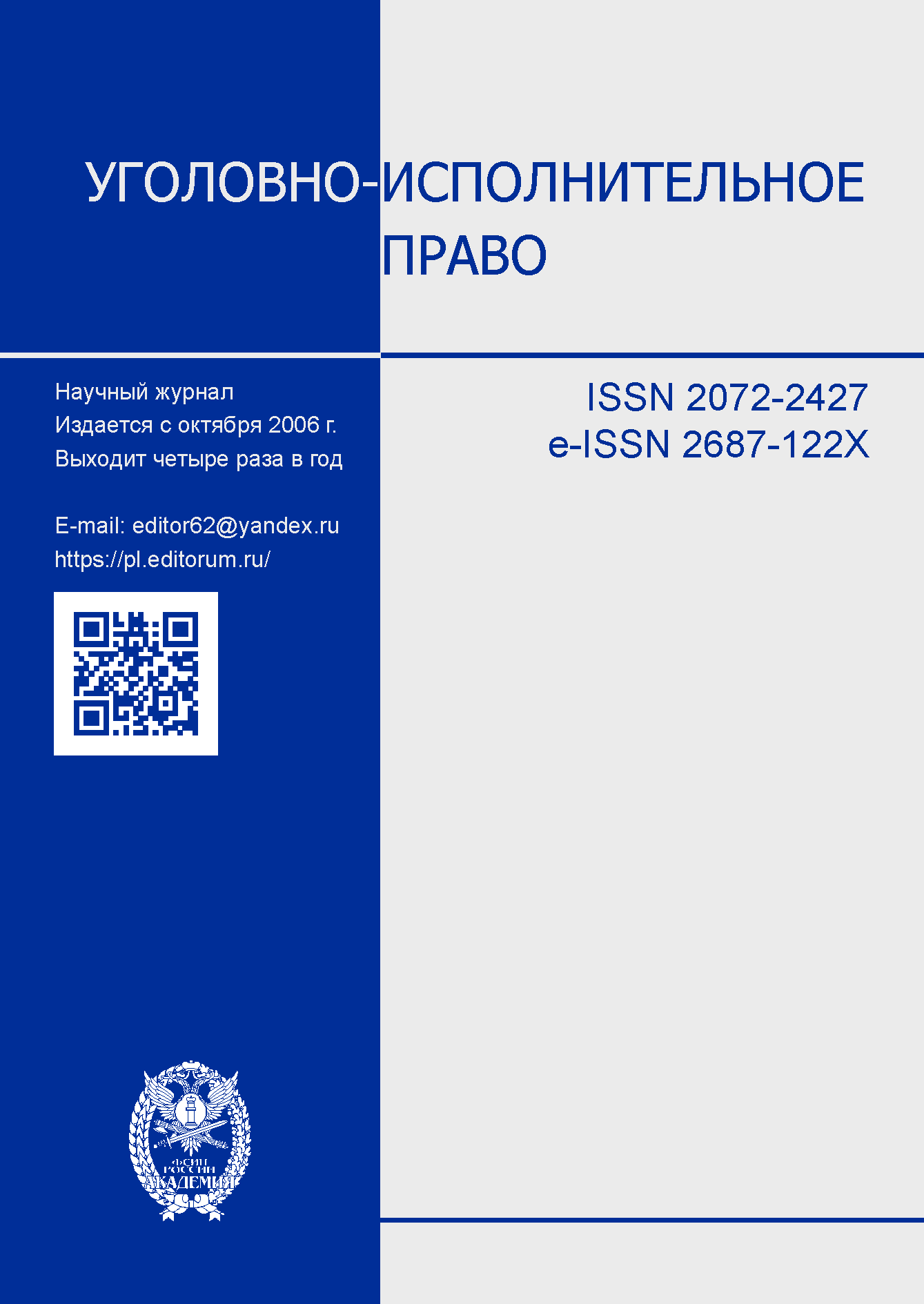UDC 343.2
The article is devoted to the need to revise the methodological foundations of criminal law in modern conditions of changes in legal and social systems. In an environment of rapid technological progress and increasing complexity of social interactions, traditional approaches to criminal law are becoming insufficiently effective. The author focuses on the critical need to adapt the methodology of criminal law, emphasizing that existing theoretical and practical approaches are not able to fully respond to the challenges of the time. The methodology of criminal law as a key basis for scientific analysis and law enforcement requires revision and updating in order to more adequately reflect modern realities. The focus is on the need to integrate interdisciplinary knowledge and the introduction of modern technologies such as artificial intelligence and big data analysis. These innovations can significantly improve methods of predicting and preventing crimes, as well as contribute to a more accurate and fair application of criminal law. The article also discusses the importance of humanizing criminal law, including mitigation of penalties and consideration of the individual characteristics of the offender, which implies a transition to more restorative and rehabilitative measures. The prospects of introducing environmental and gender approaches into the methodology of criminal law are considered, which will allow for a more complete consideration of a wide range of social and ethical issues. The author concludes that the effective development of criminal law requires a comprehensive update of the methodological foundations, which will provide science with the opportunity to adequately respond to modern challenges and offer innovative solutions for law enforcement that meet the requirements of the time.
science, methodology, intentions, criminal law, methods of cognition, promising approaches, directions, aspects, branch of law, methodological tools, crisis of science, actualization of legal norms, scientific conservatism, interdisciplinary approach, empirical research, legal hermeneutics, innovative methods of analysis, integration, technologies, predictive analytics, adaptation to social change, scientific discoveries
1. Syrykh, V. M. 2000, Logical foundations of the general theory of law, in 2 vols, vol. 1, Elemental composition, Moscow.
2. Polyakov, A. V. 2000, ‘St. Petersburg School of Philosophy of Law and the tasks of Modern Jurisprudence’, Jurisprudence, iss. 2, pp. 4–23.
3. Naumov, A. V. 2006, ‘Open Letter to Academician V. N. Kudryavtsev’, Criminal Law, iss. 4, pp. 135–136.
4. Zhalinsky, A. E. 2015, Selected Works, in 4 vols, K. A. Barysheva et al., O. L. Dubovik (ed.), Publishing House of the Higher School of Economics, Moscow.
5. Leshkevich, T. G. 2001, Philosophy of Science: Traditions and innovations: textbook, PRIOR, Moscow.
6. Rakitov, A. I. 2013, Anatomy of Scientific Knowledge (a popular introduction to the logic and methodology of science), Direct Media, Moscow.
7. Feldstein, G. S. 2003, The main trends in the history of the science of criminal law in Russia, V. A. Tomsinov (ed.), Zertsalo, Moscow.
8. Heinrich, N. V. 2011, The subject and method of criminal law regulation: Sc.D thesis (Law), Ryazan.
9. Alferenko, A. V. 2013, The method of regulation in criminal law: PhD thesis (Law), Yekaterinburg.











